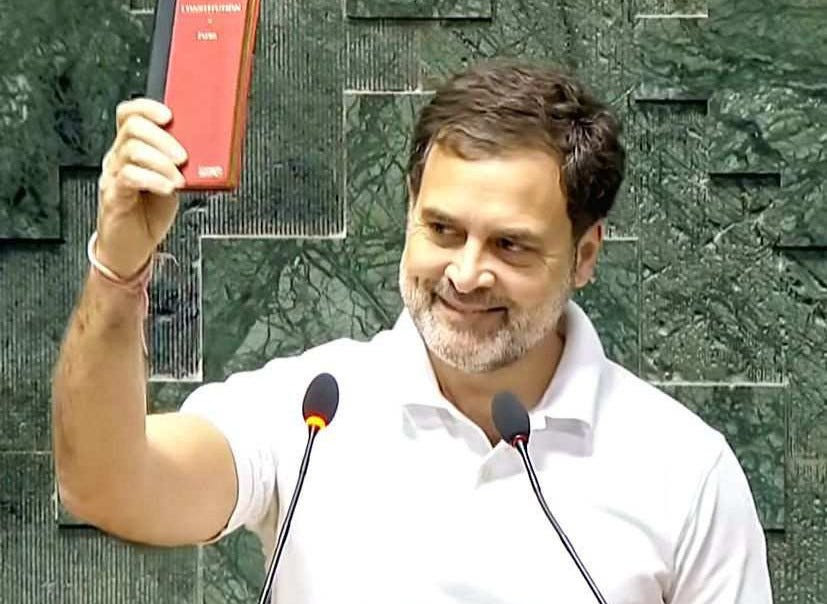
By: John Elliott
Narendra Modi’s unexpected failure to achieve an outright parliamentary majority for his Bharatiya Janata Party in India’s recent general election will go down in history as the trigger for the revival of the country’s Nehru-Gandhi dynasty that seemed to be on a path of endless decline, in addition to the result as a historic personal setback for Modi’s now unreal dream of becoming an invincible Hindu nationalist leader facing virtually no opposition.
The revival became clear on June 25 when Rahul Gandhi, the dynasty’s heir apparent, was named leader of the Opposition in India’s parliament. Never before have other opposition parties, now working together for the first time in years, been willing to accept him as their leader. How long the unity will last – and how successful a leader Gandhi will be – remains to be seen, but this is a new era in Indian politics.
Modi is facing the challenge, both in parliament and across the country, of managing opposition that he has never faced in his political career. The BJP’s National Democratic Alliance (NDA) has just 293 seats in the Lok Sabha (lower house of parliament), while the INDIA grouping that includes the Congress Party has 232. Modi has to rely on two potentially unreliable regional NDA parties for a parliamentary majority.
“The space in the Indian political system has been blown open,” Gandhi told the Financial Times last week. “The idea of Mr. Modi and the image of Mr. Modi has been destroyed,” he added, with a tinge of exaggeration.
The Opposition leadership is – till now, power-shy – Gandhi’s first constitutional post after 21 years in politics. It is also the first time that he has accepted a formal role since 2019 when he resigned as president of the India National Congress party after years of election failures. Aged 54, he has been groomed by his mother, Sonia Gandhi, to take on the mantle of her late husband and his father, former prime minister Rajiv Gandhi, who was assassinated in 1991. Italian-born, Sonia has seemed to regard it as her duty to act as a bridge between the generations. She served for many years as the party president.
Priyanka Gandhi Vadra, Rahul’s 52-year-old sister, has until recently remained mostly in the background, though she is a more instinctive and sharper politician. She is now becoming a member of parliament for the first time and seems likely to emerge as her brother’s main support.
Rahul entered politics in 2004, but his political performances have been erratic and his public appearances are frequently underwhelming. He consistently resisted taking responsibility on a continuing basis and became famous for disappearing abroad at key times. He was regularly mocked by Modi and other opposition politicians as a privileged Shahzada (prince) and there was general despair about him ever growing up politically.
“Normally, after every election campaign, Gandhi used to board the next flight out of India to decompress,” Swati Chaturvedi, an experienced columnist, wrote this week. “The BJP waited eagerly for it [this time], created memes and content, yet despite the record heat in India touching 50 degrees in Delhi, Gandhi has not budged.”
The changes have become visible in the past couple of years when Gandhi has made two long yatras (journeys), first walking 2,200 miles from the south to the north of the country 18 months ago, and then traveling from east to west earlier this year. Observers noted that Gandhi was developing a national profile and respect on this year’s yatra, even though he wasn’t (and still isn’t) in charge of the party officially – a non-Gandhi veteran politician, Mallikarjun Kharge, is the party president and his mother is chair of the Congress parliamentary party.
“He has become a symbol for all those dissatisfied with the Narendra Modi rule. And the first choice of the minorities – wherever the Congress is in a position to get its act together,” Neerja Chowdhury, a veteran political columnist wrote in March.
That emerged especially in the politically sensitive state of Uttar Pradesh where Gandhi worked closely with Akhilesh Yadav, leader of the state-based Samajwadi Party, seemingly helping to pave the way for the Opposition leadership.
When I spoke to Gandhi in London just over a year ago, he sounded confident and said that the Congress Party had the “ideological spine” and “foundational ideology” needed to defeat Modi. Regional parties, now aligned with Congress, didn’t have “the necessary ideology” to tackle the BJP and its hardline mother organization, the Rashtriya Swayamsevak Sangh (RSS).
The regional party leaders probably wouldn’t agree with all of that, but there is no doubt that Congress is the only party that has the nationwide reach needed to unite the opposition, even though its image has sunk in recent years.
Gandhi made a good start in parliament with a short speech on June 26. Congratulating the BJP’s Om Birla on being re-elected speaker of the Lok Sabha, he said that Birla had the “duty of defending the Constitution of India” and was the “final arbiter of the voice of the people”. The Opposition now “represented…that voice significantly more” than it had in the last parliament. This was a plea for the opposition not to be silenced as it had been, and a warning that the BJP should not tamper with the constitution.
The Opposition now needs to develop positive policies for the future so that its political platform is not just opposing the Hindutva authoritarianism and nationalism of the Modi regime. Modi’s aim since he became prime minister 10 years ago has been to eliminate memories of the dynasty’s positive role in India’s development so that he could supplant Jawaharlal Nehru, Rahul Gandhi’s great grandfather, as the country’s greatest prime minister. That looks far less likely to happen than it did just a few weeks ago.
source : asiasentinel
